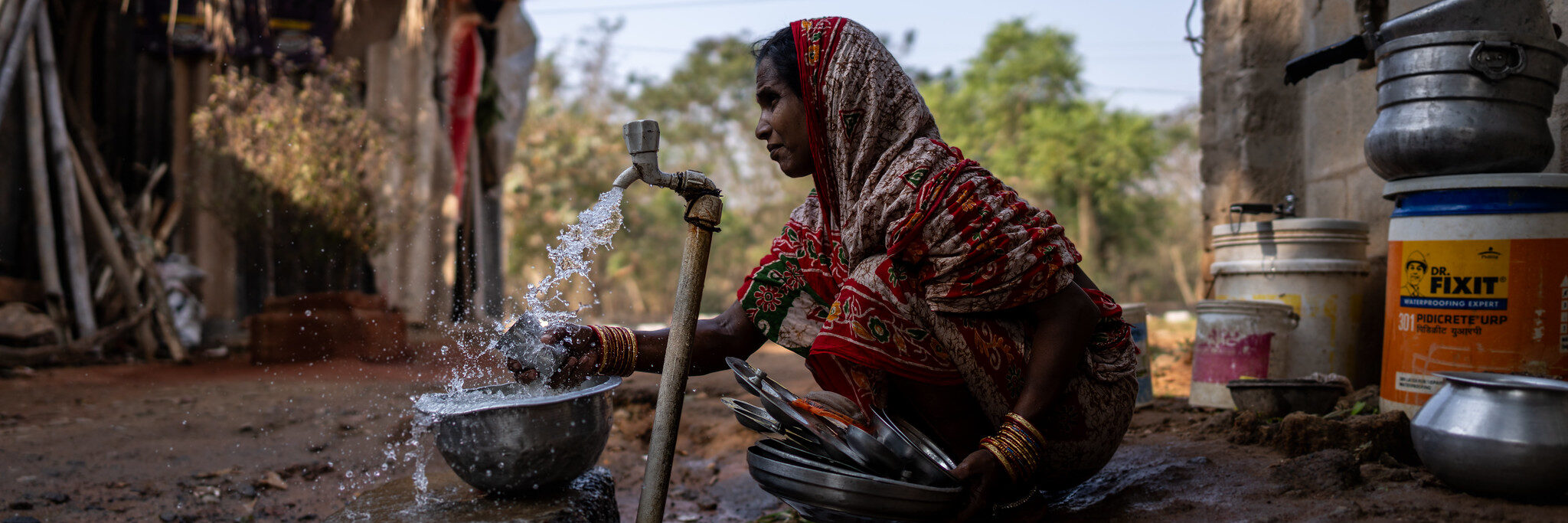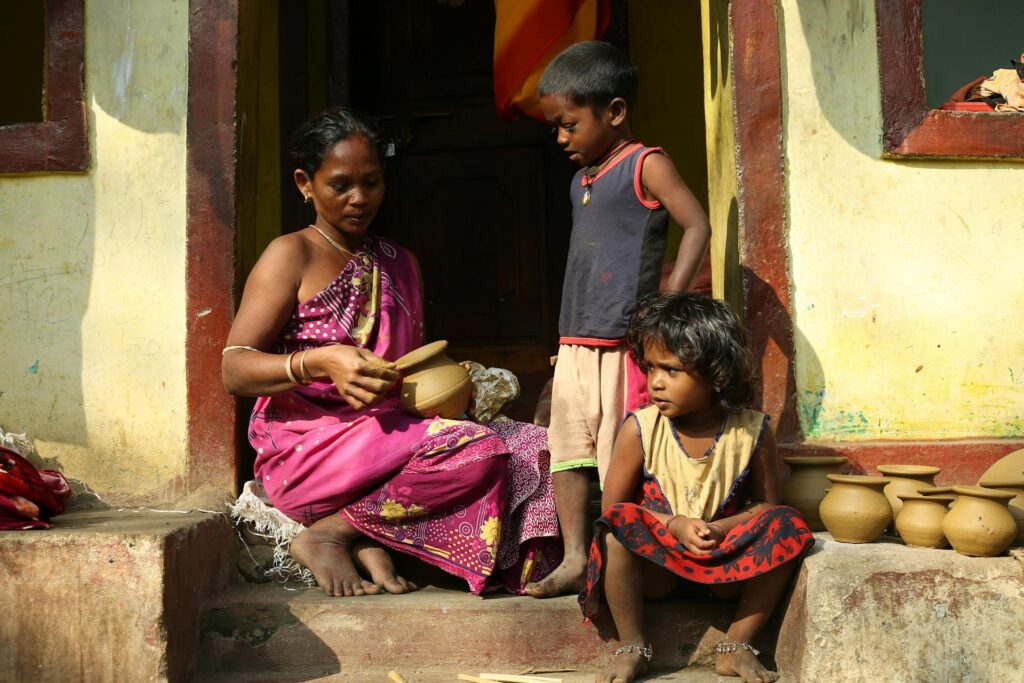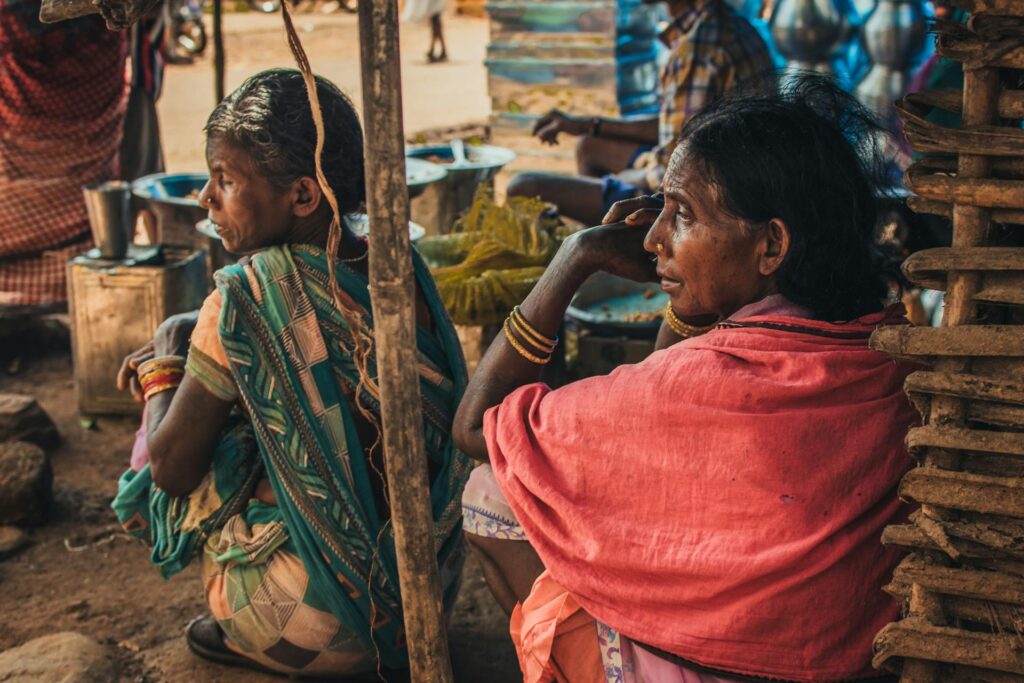Sriperumbudur, Kancheepuram, Tamil Nadu, India
In collaboration with

March 2025 – September 2025
We are providing access to sanitation facilities for 66 households from the Irular community and other marginalized sectors. This initiative supports local government efforts to achieve and maintain Open Defecation Free (ODF) status in the district.
Objectives
- Provision of essential sanitation facilities for 66 households
- Improved hygiene and reduced health risks
Beneficiaries
330 direct
Residents of the 66 households from the Irular community

On the Ground
There is a lack of sanitation infrastructure in a historically marginalized community that urgently needs to eliminate open defecation.
Sriperumbudur, also known as Thiruperumbudur, is a municipality and the district headquarters of Kanchipuram in the Indian state of Tamil Nadu. It is located 40 kilometres southwest of the capital city, Chennai. Approximately 58% of the population lives in rural areas, and 31% belong to the most economically and socially vulnerable sections of society. These include the Irular tribal community and Scheduled Castes—historically marginalized social groups in India officially recognized by the Government for affirmative action, such as access to quotas in education, employment, and welfare programs.
The average monthly household income in the district ranges between ₹6,000 and ₹8,000 (€66 – €89), highlighting the economic challenges faced by villagers. Most houses are kutcha structures built with mud, palm leaves, plastic sheets, and other temporary materials, reflecting precarious living conditions.
According to data from the local panchayat, nearly 80% of the economically vulnerable population lacks adequate household toilets and practices open defecation. Urgent action is needed to reduce open defecation to prevent the spread of waterborne diseases such as cholera, dysentery, and diarrhoea and to improve the safety of women and children by protecting them from the risks associated with this practice—such as harassment, assaults, and exposure to unsanitary conditions.
It is essential to construct individual household toilets to address the urgent infrastructure gap, improve hygiene standards, reduce health risks, and enhance the quality of life for these vulnerable populations, helping to ensure their social and economic development is not hindered.

In Detail
This project will support local government efforts to achieve and maintain Open Defecation Free (ODF) status by promoting access to safe and hygienic sanitation facilities.
The project will implement the following standard measures to ensure its effectiveness:
- Collection and maintenance of relevant educational and communication materials related to sanitation
- Needs assessment/baseline survey in the target area to update relevant data
- Program monitoring and progress evaluation through regular field visits and periodic review meetings
Project activities will follow this sequence:
- Technical assessment to evaluate needs and gather baseline data
- Understanding field realities and community acceptance, including existing infrastructure and available support
- Orientation, awareness-raising, and training sessions
- Construction of sanitation units, carried out under the supervision of technical experts to ensure material quality and adherence to the construction timeline.
Habitat for Humanity India will ensure regular monitoring through field visits and periodic updates. The organization will also supervise compliance with the construction plan in coordination with field staff, school authorities, and technical experts.

Sustainability Outlook
The sanitation technology used is low-maintenance, suitable for water-scarce regions, and ensures functionality even under challenging conditions. The use of locally sourced materials facilitates repairs and maintenance, reducing dependence on external resources.
Increased awareness and adoption of hygiene and sanitation practices promote long-term behaviour change, which is the foundation of sustainability.
To this end, the project includes capacity-building and awareness programs aimed at fostering community ownership and responsibility. Beneficiary families, in collaboration with government programs and school management committees, will be responsible for the technical maintenance of the sanitation infrastructure and fixtures.

